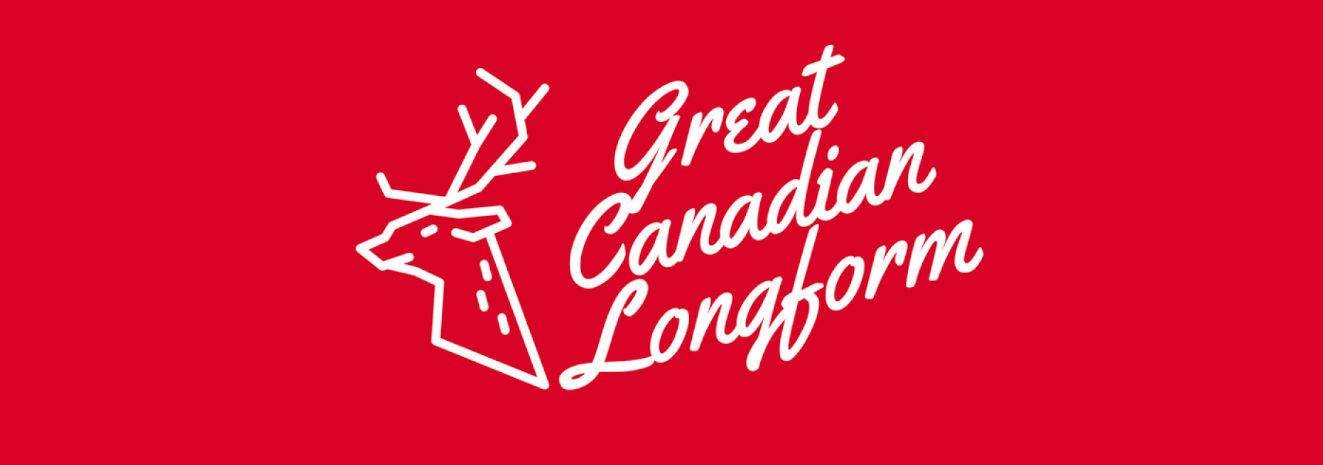Great Canadian Longform is curating the best of Canadian non-fiction writing
This story was funded by the J-Source Patreon campaign.
Some of the best-known names in longform journalism are American, from Gay Talese and Joan Didion to contemporary writers like Susan Orlean. But their Canadian equivalents can fall under the radar.
It was something Rob Csernyik noticed in his feature-writing class at the University of King’s College journalism program in Halifax, where the longform stories in the class syllabus were exclusively American. “We talk so much about diversity in journalism and in writing…and I just found it strange that this class had no Canadians (featured),” said Csernyik, a 31-year-old freelance writer in Montreal.
And as a self-identified “avid reader of longform,” he noticed curation websites like Longform and Longreads rarely shared stories from Canada. So in January, he decided to remedy that. Csernyik started Great Canadian Longform, a curation website for longform journalism “by, for and about Canadians” to help connect Canadian readers with writers and stories from their own country.
“If people are interested in reading stories from the United States and other countries around the world, surely they’re interested in what’s happening in Canada,” he said. “It seemed almost like an oversight that nobody had thought about doing this.”
GCL links to investigations, profiles, personal essays and reported features from outlets already well-known for their longform work, like BuzzFeed Canada, The Walrus and Maisonneuve, and smaller publications like Canadian Notes & Queries and Geist.
Csernyik accepts story recommendations from writers, editors and other readers, but said that he is currently doing most of the curation himself. “I have to put on the editor hat and seek out a lot of pieces, and try to be very thoughtful about how they’re picked,” he said. He tries to feature stories from different magazines and authors, covering a range of topics and parts of Canada.
Brett Popplewell, an author, magazine journalist and assistant professor at Carleton University’s School of Journalism and Communication, said GCL is “doing a service to be collecting and aggregating all these pieces from all over. (Csernyik) is getting names on here that I haven’t heard of.”
Popplewell said because American culture is so omnipresent in Canada, domestic magazines and writers can suffer in the shadow of American giants. “There are many great (Canadian) titles and writers that go all the way back to the founding of Saturday Night, which brings us back to the late 1800s, but…it has never been easy for them stand out on a newsstand,” he said. “There’s a lot of great work here that is easily overlooked if you just read and study Joan Didion.””
When Popplewell teaches feature writing, he uses examples from the genre’s “greats,” including Didion, Talese, Tom Wolfe and Hunter S. Thompson, to help his students grasp elements of feature writing, like dialogue, scene-writing and embedded reporting. But he also includes a cross-section of Canadian writers, including younger ones, like Omar Mouallem, Kyle Edwards, Eva Holland, Desmond Cole, Scaachi Koul and Katie Daubs. “Some of them I know, so I can get access to them to have them speak,” he said, which helps students understand the work that goes into longform reporting.
Csernyik agreed that featuring Canadian stories in feature-writing classes could be particularly useful for students. “When you’re training journalists in Canada they’re (going to be) writing for Canadian publications,” he said, “and it doesn’t hurt to have a background on some of the better known Canadian pieces and why they are so well known.”
While GCL is still in its early days, Csernyik is thinking long-term. He said he’d like to start running original content in the coming months, including analysis and interviews with writers or others involved in the stories GCL is promoting, and is also considering a podcast.
Kelsey Rolfe is a Montreal-based freelance writer with bylines in the National Observer, Maisonneuve and the National Post, among others.



